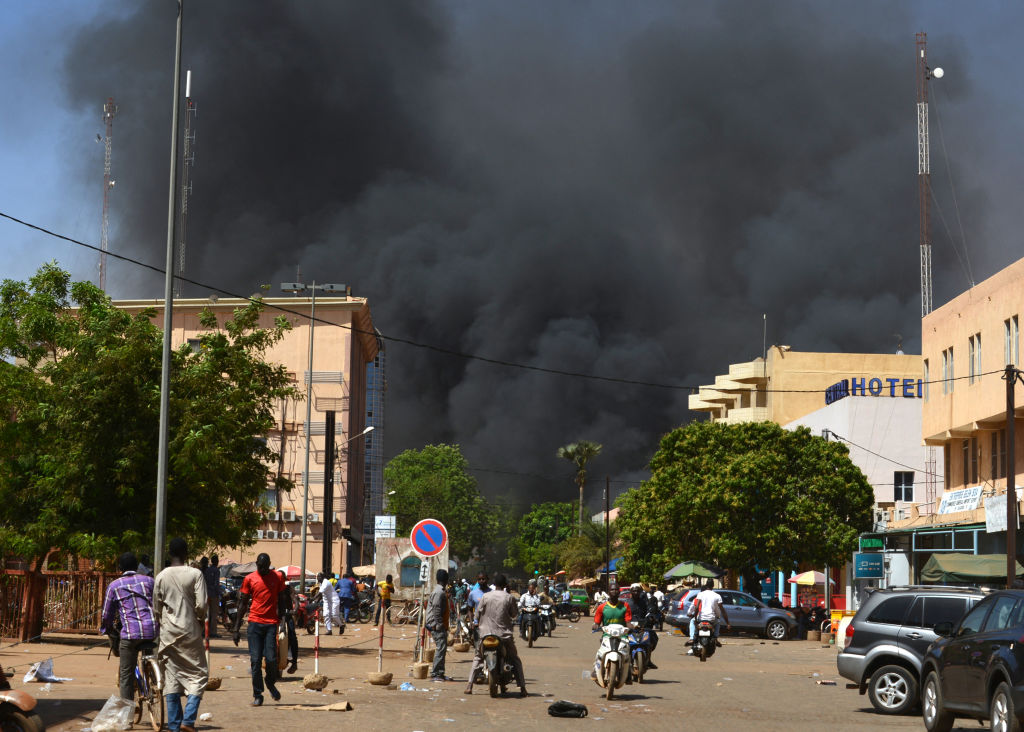For the second year in a row, Burkina Faso is the nation most affected by terrorism in the world, according to the latest edition of the Global Terrorism Index.
Australia’s Institute for Economics and Peace compiles its yearly list based on terrorism incidents, fatalities, injuries and hostages. Six of the list’s 10 countries most affected by terrorism are in Africa.
In addition to Burkina Faso, the other African countries in the top 10 include its Sahelian neighbors, Mali (No. 4) and Niger (No. 5), along with Nigeria (No. 6), Somalia (No. 7) and Cameroon (No. 10).
“The Sahel region remains terrorism’s epicenter, accounting for over half of all global terrorism deaths,” index analysts reported.
While the latest report shows an overall drop in terrorist activities, attacks have become deadlier.
In Burkina Faso, for example, the number of attacks dropped 17% between 2023 and 2024; however, deaths jumped 68%.
In one incident, 200 people died in a single Burkinabe community when they were attacked by al-Qaida-affiliated Jama’at Nusrat al-Islam wal-Muslimin (JNIM) in August 2024. JNIM-related violence surged by 50% in Burkina Faso in 2024 compared to 2023, according to index analysts.
In Niger, terrorism reached an unprecedented level. Niger saw terrorism-related deaths nearly double from 479 in 2023 to 930 in 2024. Nearly 500 of the 2024 deaths were among members of the military.
In the Tahoua region near Mali, 300 terrorists killed 237 Soldiers, making it Niger’s deadliest attack. It was also the deadliest attack in the entire world in 2024.
The Sahelian countries’ ruling juntas overthrew their democratically elected governments between 2021 and 2023, based on the argument that the elected governments had failed to stop terrorists. The military rulers claimed they would do better. So far, however, security in all three countries has continued to deteriorate. Burkina Faso, for example, jumped from No. 6 on the index list in 2020 to No. 2 in 2022, the year that the country experienced two military coups within nine months of each other. Since then, Burkina Faso has held the top spot on the list.
The 2024 report was the third one showing more than 1,000 people killed by terrorists in Burkina Faso. About two-thirds of those deaths were near the tripoint border with Mali and Niger.
The Islamic State group, which operates across the Sahel and in Somalia, remained a major cause of terrorism worldwide. However, incidents connected to it in Africa declined by 44% between 2023 and 2024.
JNIM, the world’s second-deadliest terrorist organization, killed 1,454 Soldiers and civilians in 146 attacks in Africa. That death toll represented a 46% increase over 2023 and reached the highest level since the group arose in Mali in 2017.
JNIM’s “strategic use of porous borders and challenging terrain has allowed it to evade direct confrontations, even as counterterrorism forces ramp up operations,” index analysts reported. “Its ability to embed itself in local communities and exploit weak governance has solidified its position as the most prominent insurgent group in the region.”
Nigerian security expert Kabir Adamu told Channels TV that Nigeria experienced fewer attacks overall, but more mass-fatality incidents than in years past. That included an attack in northeastern Yobe State that killed 150 people. Adamu said it is vital for countries to invest more in the socioeconomic health of regions where terrorists operate. Building up those local economies would undercut the ability of terrorist groups to attract new members.
Fighting terrorism is not solely the province of the military, Adamu said.
“The oxygen that allows terrorists to thrive is rooted in socioeconomic conditions,” Adamu said. “If the groups are able to recruit, they’re able to incentivize people with little money to do whatever terrorist activities they want.”

